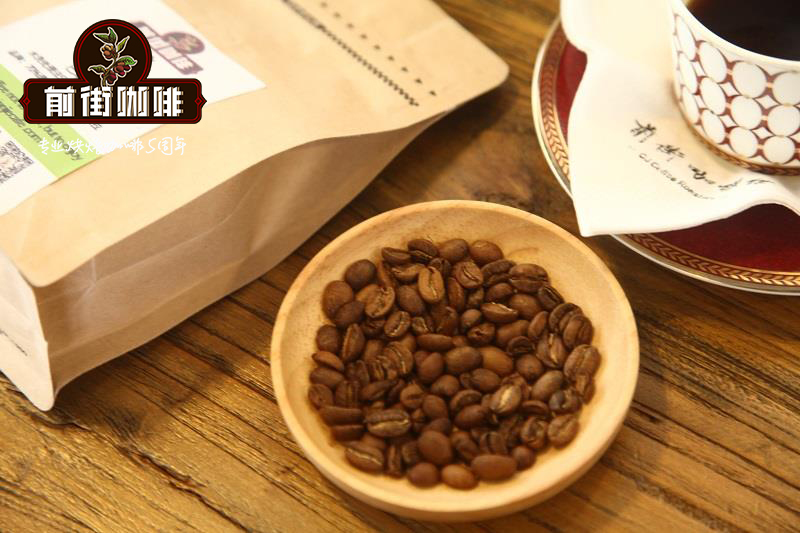Characteristics of single mocha coffee beans _ how to buy mocha coffee beans _ is mocha coffee good?

Professional coffee knowledge exchange More coffee bean information Please pay attention to coffee workshop (Weixin Official Accounts cafe_style)
Yemeni mocha coffee is grown in a terraced place with an elevation of about 1,000 m~ 1,300 m in the interior of Yemen in West Asia. Among all the producing areas, Bani-MATAR and HAYMI areas, which are Arabic for "descendants of rain", are the most famous. Because of the abundant rain and occasional mist in this area, and because the coffee trees here are almost all native coffee trees, the picking method is also planted according to the ancient method and manually picked, combined with the complete sun drying treatment, it has the special smell of native mocha, and the charming coffee with sweet taste.
Yemeni mocha has always been praised as "the wine of Arabia", mild in tone but also variable. Yemeni mocha is suitable for medium to deep roasting, with blueberry, fruit wine, nut and slight flower aromas when moderately roasted, while deep-roasted coffee can feel sweet like sugar roasted chestnuts and taste like drinking hot cocoa at first taste. It is rich in fat, thick in taste and full of alcohol.
Yemen was known as Arabia until the sixth century AD, so coffee trees transported from Yemen were also known as Arabica trees. The origin of these trees is Ethiopia (Ethiopia), and it is the Dutch who spread these coffee trees all over the world. Dutch merchants heading east around the Cape of Good Hope, before they began their long journey
Before arriving in India, it must first pass through the east coast of Africa to the port of Mocha in Yemen. In 1696 the Dutch introduced coffee trees to Ceylon (now Sri Lanka) and then to Batavia in Java. Mocha beans are smaller and rounder than most coffee beans, which makes them look a lot like peas-in fact, Peaberry beans are sometimes called mocha beans. Mocha beans are similar in shape to Ethiopian Harrar beans, small in size, high in acidity, and discernable in a slightly chocolate flavor, so attempts to add chocolate to coffee are a natural progression. In Yemen, coffee growers plant poplars to provide shade for coffee trees. As in the past, the trees were planted on steep terraces to maximize use of less rainfall and limited land resources. In addition to tibika and bourbon coffee trees, more than a dozen different coffee species originating in Ethiopia are cultivated in Yemen. But even good coffee, such as premium mocha coffee, dries and the rind remains attached to the beans. Until now, traditional stone mills have often been used to remove the hard, dry husks, which makes the beans irregular in shape and often damages the beans. Although Yemeni coffee is of good quality and creamy aroma, it has its drawbacks: quality is not always guaranteed and the classification of beans is uncertain. Traditionally, Yemen's best coffee beans come from Mattari, followed by Sharki and then Sanani. These producing areas are sun treatment, so coffee beans with wild flavor, overall Yemen coffee unique character, wild strong, complex, exciting, especially charming wine acid and deep dark chocolate taste so many people love. These beans are low in caffeine and are exported from December to April. There has been a problem in the past with coffee from the north being adulterated before it is shipped from the southern port of Aden. Only coffee shipped from the port of Hodeida can be identified as truly originating in the north.
Yemen mocha coffee beans brand recommendations
Front Street Coffee roasts Yemeni mocha beans with full guarantees of brand and quality. More importantly, the cost performance is extremely high, 227 grams per pack, the price is only about 85 yuan. According to the calculation of 15 grams of coffee beans per cup of coffee, a pack can make 15 cups of coffee, each cup only costs about 6 yuan, compared with the price of dozens of pieces of coffee sold in cafes.
Qianjie Coffee: Guangzhou's baking shop, small store but a variety of beans, can find a variety of famous beans, but also provide online store services. https://shop104210103.taobao.com
Important Notice :
前街咖啡 FrontStreet Coffee has moved to new addredd:
FrontStreet Coffee Address: 315,Donghua East Road,GuangZhou
Tel:020 38364473
- Prev

What kinds of coffee do you have for mocha beans? how much is a pack of Italian mocha beans
Professional coffee knowledge exchange more coffee bean information please follow the coffee workshop (Wechat official account cafe_style) Yemen Madali Yemen Mattri mocha coffee beans Yemen mocha has a wonderful level of taste, both wild but introverted and variable dry Arabian soil, lack of moisture in the air, so that the coffee beans grown here are particularly hard and small, but also because of the unique climate type.
- Next

Yemen Mocha also how to brew mocha coffee beans _ video of how to drink mocha coffee beans
Professional coffee knowledge exchange more coffee bean information please follow the coffee workshop (Wechat official account cafe_style) for lovers who dabble in coffee slightly, when it comes to Yemeni coffee, it is easy to associate mocha coffee beans. Yemen has a long history of growing coffee. By the early 17th century, Yemeni coffee beans began to be exported to Europe from the southwestern port of Mocha, and Europeans began to export
Related
- Detailed explanation of Jadeite planting Land in Panamanian Jadeite Manor introduction to the grading system of Jadeite competitive bidding, Red bid, Green bid and Rose Summer
- Story of Coffee planting in Brenka region of Costa Rica Stonehenge Manor anaerobic heavy honey treatment of flavor mouth
- What's on the barrel of Blue Mountain Coffee beans?
- Can American coffee also pull flowers? How to use hot American style to pull out a good-looking pattern?
- Can you make a cold extract with coffee beans? What is the right proportion for cold-extracted coffee formula?
- Indonesian PWN Gold Mandrine Coffee Origin Features Flavor How to Chong? Mandolin coffee is American.
- A brief introduction to the flavor characteristics of Brazilian yellow bourbon coffee beans
- What is the effect of different water quality on the flavor of cold-extracted coffee? What kind of water is best for brewing coffee?
- Why do you think of Rose Summer whenever you mention Panamanian coffee?
- Introduction to the characteristics of authentic blue mountain coffee bean producing areas? What is the CIB Coffee Authority in Jamaica?

